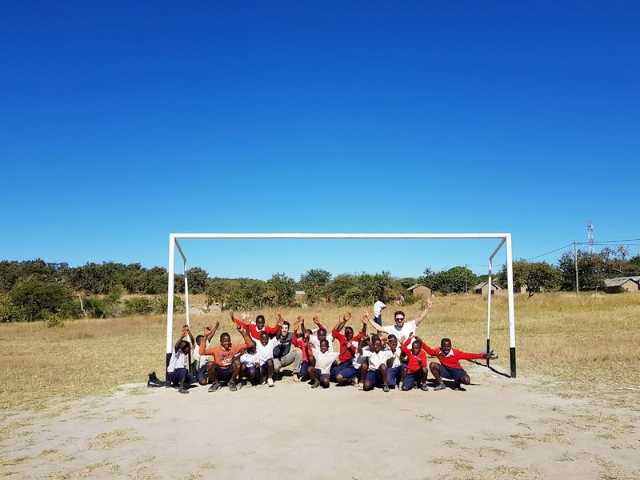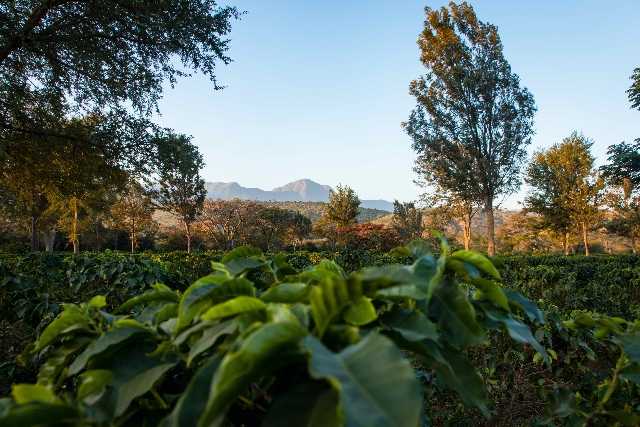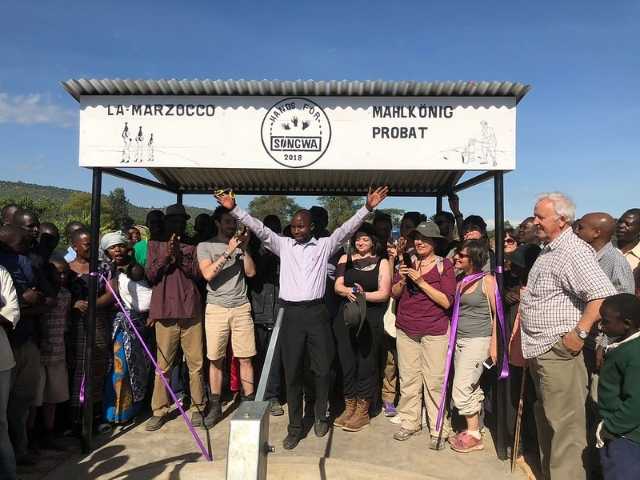SONGWA, Tanzania – Leading premium espresso machine manufacturer La Marzocco and leading coffee grinder manufacturer Hemro announced the establishment of the Hands for Songwa Foundation. This remarkable initiative finds its roots in the Songwa Estates non-profit project, which originated in 2007 with the steadfast collaboration and sponsorship of the initial three industry leaders: La Marzocco, Hemro and Probat.
Beginning January 2024, Probat has chosen to redirect its focus towards other projects. Hemro and La Marzocco will persist in their support and remain receptive to welcoming a new partner in the future.
The Hands for Songwa Foundation is a locally driven endeavour that marks the evolution of the Songwa Estates project, now set to carry forward its original mission independently.
The Songwa Estates Project, in its initial phase, was designed to uplift the quality of life for the community residing near the Songwa plantation in the Mbeya region of Tanzania.
La Marzocco and Hemro – alongside the past involvement of coffee roaster manufacturer, fuelled by a commitment to social responsibility, funded various infrastructure projects by contributing a percentage of their profits.

These endeavours included the construction of wells, the renovation of school buildings, the establishment of a bridge, the creation of a kindergarten, and essential financial support for workers during the challenging times of the pandemic.
Simultaneously, the Songwa plantation evolved into a hub for education and personal growth for collaborators from the sponsors, eager to deepen their understanding of coffee’s origins. Through this unique experience, Songwa played a pivotal role in propagating coffee culture and enhancing knowledge of the intricate coffee supply chain, often distanced from the final consumer. This direct engagement at the plantation significantly heightened awareness and sensitivity within the coffee sector, steering it towards ongoing research in pursuit of greater economic, social, and environmental sustainability.
After 15 years of unwavering commitment, La Marzocco, Hemro and the Songwa plantation have elevated their collaborative efforts by establishing the independent Hands for Songwa Foundation.
This non-governmental organization, headquartered in Dar es Salaam, is now capable of receiving direct donations and autonomously executing projects in the region. These projects aim to uphold the original mission while multiplying their impact on the broader community residing near the plantation.

While La Marzocco and Hemro will continue to offer direct support to the community, they are also actively researching future initiatives designed to foster local economic development. Furthermore, the leading companies pledge to serve as advocates for ongoing projects, leveraging their communication channels to maximize outreach and support for the community. Their commitment extends to maintaining a close relationship with the Songwa plantation through continued training opportunities and innovative research projects.
Commencing in 2024, the initial undertaking is the “Hisuimbe Project”, with a visionary three- year plan.
Over this period, the project places women in the lead, championing sustainable agro-economic development. The focal points include creating a model for sustainable practices with minimal environmental impact, establishing a community nursery generating 3,000 to 4,000 certified plants, and initiating 100 small coffee plots.
The program’s dynamic approach extends to fostering subsistence production through 100 social gardens, coupled with comprehensive training and technology transfer. A remarkable feature is the formation of a legally recognized entity, exclusively comprising 150-200 women from neighbouring villages, with Utengule serving as the operational hub.
The “Hisuimbe Project” also introduces a pivotal economic empowerment element – a rotating microcredit system. This initiative seeks to issue 100 six-monthly contracts, empowering women producers within the association.
The establishment of the Hands for Songwa Foundation signifies a new chapter in the enduring partnership between La Marzocco, Hemro and the Songwa community.
Quote Marcel, CEO of Hemro, stated: “Songwa holds a special place in our hearts, and with the newly established Hands for Songwa Foundation, we’re taking a crucial step to enhance support for the local community. Our inaugural project focuses on empowering women, fostering growth not only in their lives but also in the well-being of their families. Through this foundation, we aim to create positive, lasting impact, reinforcing our commitment to social responsibility and community development in Songwa.”
Guido Bernardinelli, CEO of La Marzocco, declared: “The growth of the sector has brought increased awareness on the origins of the coffee that we all enjoy every day. The consumers are willing to pay more for good specialty coffee and they want to know where it comes from, who produces it and how it is produced. The prices have gone up but, despite this, the farmers, often the most disadvantaged in this context, have seldom been getting better margins. With the establishment of this foundation, we want to show that the transition to a sustainable coffee industry based around empowering the people working at the origin is indeed possible.”
For more info click here and here.


















